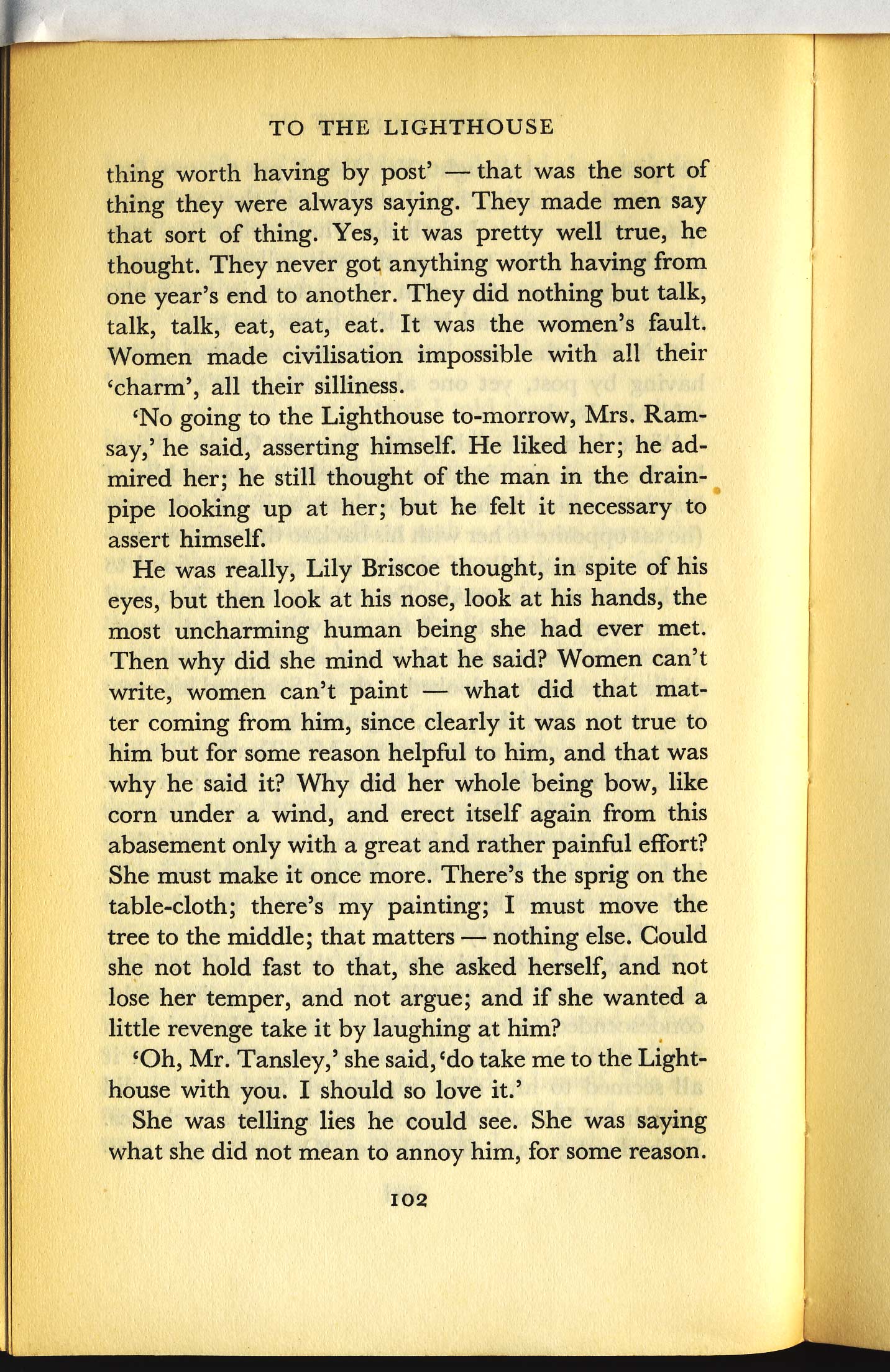
TO THE LIGHTHOUSEthing worth having by postŌĆÖ ŌĆö that was the sort ofthing they were always saying. They made men saythat sort of thing. Yes, it was pretty well true, hethought. They never got anything worth having fromone yearŌĆÖs end to another. They did nothing but talk,talk, talk, eat, eat, eat. It was the womenŌĆÖs fault.Women made civilisation impossible with all theirŌĆścharmŌĆÖ, all their silliness.
ŌĆśNo going to the Lighthouse to-morrow, Mrs. Ram-say,ŌĆÖ he said, asserting himself. He liked her; he ad-mired her; he still thought of the man in the drain-pipe looking up at her; but he felt it necessary toassert himself.
He was really, Lily Briscoe thought, in spite of hiseyes, but then look at his nose, look at his hands, themost uncharming human being she had ever met.Then why did she mind what he said? Women canŌĆÖtwrite, women canŌĆÖt paint ŌĆö what did that mat-ter coming from him, since clearly it was not true tohim but for some reason helpful to him, and that waswhy he said it? Why did her whole being bow, likecorn under a wind, and erect itself again from thisabasement only with a great and rather painful effort?She must make it once more. ThereŌĆÖs the sprig on thetable-cloth; thereŌĆÖs my painting; I must move thetree to the middle; that matters ŌĆö nothing else. Couldshe not hold fast to that, she asked herself, and notlose her temper, and not argue; and if she wanted alittle revenge take it by laughing at him?ŌĆśOh, Mr. Tansley,ŌĆÖ she said, ŌĆśdo take me to the Light-house with you. I should so love it.ŌĆÖShe was telling lies he could see. She was sayingwhat she did not mean to annoy him, for some reason.102









